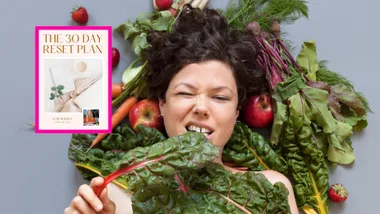Who would have thought that the humble herb pot at your back door could be growing such a powerful health story? A sprinkle of chopped chives on a baked potato, rosemary on a rack of lamb and ginger with chilli on baked fish, hardly adds up to much in the way of nutrition. Or does it? Let’s take a closer look at benefits (some just sprouting) of common culinary herbs.
Nature’s flavour enhancers
If you’re dieting, then your béarnaise, mayonnaise and hollandaise days are likely to be over. But you can still enhance the flavour of food while cutting down on fat and salt. Make significant fat and kilojoule savings by simply switching heavy oil, butter and cream sauces with fragrant, aromatic herbs. Try rubbing roasted garlic on meat instead of adding gravy or combining dill and lemon juice on grilled fish, instead of a dollop of tartare sauce.
BBQ perfect match
Everybody loves a barbie, but in more recent times concerns have been raised about the potentially cancer causing compounds that are formed when meat is grilled at high temperatures. But maybe Mother Nature is looking out for us? Recent research from Kansas State University has revealed that there may be more to the story of the perfect flavour match of lamb and rosemary. When meat was rubbed with antioxidant extracts of common herbs like rosemary, basil, oregano and thyme, the levels of harmful compounds known as heterocyclic amines (HA) were reduced. This effect was thought to be due to the powerful antioxidants in herbs soaking up these HA free radicals.
Kitchen capers
As herbs are consumed in small serve sizes relative to many other foods it is in some ways unfair to compare their nutrient content on a per serve basis. For example, even though many herbs are high in vitamin C, you’re not going to get anywhere close to your daily needs with say a parsley garnish on a bowl of soup. Unless you’re into eating a bowl of tabouleh everyday, an orange just seems to be a much easier source of vitamin C. However, when you dig a little deeper and look at the phytochemicals in herbs, the grass may turn out to be a little greener. It seems that studies on the antioxidant capacity of culinary herbs show that they may have higher levels than medicinal herbs plus fruits and vegetables. Furthermore, adding antioxidant-rich herbs to other foods, like basil to a tomato salad, may enhance the overall antioxidant capacity of the carrier foods.
So what are you waiting for? Pot your own good luck on your kitchen windowsill, and if your thumbs are not of the green variety, keep a selection of fridge-friendly herbs to hand.











